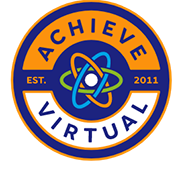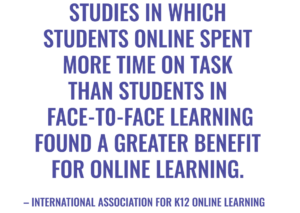 The novel coronavirus and COVID-19 pandemic forced an abrupt shift from traditional classroom education to online learning virtually overnight. Lacking adequate time to make this shift, the online learning environment resulted in a widely varying quality in education from the preschooler to the high school student to college and adult learners. But for parents who want to keep their kids learning whether school is out or in, these 7 educational apps just might do the trick—and they’re all free.
The novel coronavirus and COVID-19 pandemic forced an abrupt shift from traditional classroom education to online learning virtually overnight. Lacking adequate time to make this shift, the online learning environment resulted in a widely varying quality in education from the preschooler to the high school student to college and adult learners. But for parents who want to keep their kids learning whether school is out or in, these 7 educational apps just might do the trick—and they’re all free.
COVID-19 May Still Keep Your Kids Home This Summer
Most schools have now wrapped up their spring of online learning. When school wasn’t yet out, your kids were at home learning online. Now school is out and your kids are still at home. Parents don’t have to manage online learning anymore, but their kids still need things to do. And although many areas are trying to open back up, COVID-19 is still going to force a lot more staying home and staying inside than happens during a typical summer vacation. Parents need to find things to keep their kids busy, and if some of those activities can be educational, then all the better, right?
But parents have to be savvy about this. After all, kids can sniff out “another learning opportunity” from a mile away and will likely turn their noses up at any explicit attempt to get them to do anything that resembles an educational activity. The key to making this work is to build on two things, including your child’s natural interests as well as the widespread love of being on electronic devices of various sorts. The right educational apps can fit the bill nicely, and we’re please to present the following options to you:
More Games Than You Can Shake a Stick at From PBS Kids
We’re kicking this list off with an offering from PBS because what’s available from them runs the full gamut of every topic and subject imaginable. Parents whose children are fans of various PBS shows for kids will want to spend some time perusing the hundreds of options available at PBS Kids Games. You can see what’s available by topic or by show, which means you can put together the options that will work best for your kids from age four and up. The right online game can get your kids learning without even realizing what they’re doing is educational. Whether it’s reading, math, spelling, teamwork, or dinosaurs, PBS has a game for it. And you can also see which games are harder than others if you need to up the level of difficulty. In addition, you can sign up for the site’s daily activities and tips to keep kids playing and learning at home.
Language Learning Made Fun with Duolingo
The language learning app from Duolingo works best for students at least 13 years of age, although younger learners would be fine with a little assistance from a parent or older sibling. For students who have already been learning a foreign language, summer is a time when the knowledge of what they learned can slip away thanks to the “use it or lose it” phenomenon. Duolingo has done a great job with incorporating gamification into its language learning activities to keep students engaged and motivated to keep going. It also has apps for both iPhone and Android if that’ what will work best for your kids. Duolingo covers more than 30 different languages.
Unleash Your Budding Scientist with SciStarter
One of the coolest movements in science in recent years is citizen science—getting regular people and kids involved in collecting data and being a part of real scientific research projects. Depending on what projects are out there, younger learners would best engage this kind of fun learning with a parent involved. The place to go is SciStarter.org. And if you go to their education page, you’ll see a clear listing of more than a dozen incredible projects kids get involved in across a range of grade levels, including PreK-2, grades 3-5, grades 6-8, and grades 9-12. If you have a young scientist in your home, few things could be more fascinating than participating in real data collection for scientific study.
Young Learners Can Have Great Educational Fun with Khan Academy
Khan Academy develops free educational materials because it’s non-profit mission is “providing a free, world-class education for anyone, anywhere.” Khan Academy Kids is an award-winning collection of fun educational activities for children ages two to seven. Five different animated characters guide children through stories and activities that cover a core subjects, including literacy, reading, writing, language, and math. The curriculum was developed with input from Stanford learning experts and is aligned to both Common Core Standards and Head Start Early Learning Outcomes. It’s available on desktop/laptop computers or as apps on both Apple and Android devices.
Crime-Fighting Animals, Mystery, and Intrigue for Tweens
Parents with tweens who like a good challenge should check out the Fin, Fur and Feather Bureau of Investigations (FFFBI) website created by Boston’s public broadcasting organization, WGBH, and funded by a National Geographic Society Education Foundation Venture Fund Investment. The animal characters are hilarious, there are tons of jokes and word play, and the mysteries to solve are challenging. To solve the mysteries, learners (age range is 8-13) must use a broad range of skills, including critical-thinking, problem-solving, reading, and research skills as they also gain exposure to a wide range of subjects such as math, science, music, and history. A major focus of the stories and activities includes learning about places and cultures around the world. This website has won an array of awards, and feedback from both parents and kids is overwhelmingly positive.
A Fun Way to Learn How Government Works with iCivics
Learning about government and civics is one area that has always needed a big boost of fun to make it more engaging for kids, and iCivics.org has done exactly that with its website geared to youth ages 10 and up. It was founded by retired Supreme Court Justice Sandra Day O’Connor in 2009 a covers topics such as democracy, constitutional law, the branches of government, elections, and campaigns. And the site accomplishes its educational mission with games that both interactive and highly engaging. Among the favorites of its nearly two dozen different games are Executive Command where players get a taste of what it’s like to be the President of the United States, Win the White House to learn about running a political campaign, and Supreme Decision where players help decide the outcome of a real case before the Supreme Court. Players accumulate “Impact Points” as they play the games and then use those to direct donations made by iCivics to meaningful charities.
If Variety is the Spice of Life, then BrainPOP is the App You Need
The idea of the BrainPOP app is a short daily educational animated video featuring Tim and his robot, Moby. Topics covered span every conceivable subject area. One day’s video might be about a planet in the solar system, the next day about a famous artist, and the next day about asthma. There are also a ton of high-quality educational games kids can play. The app is geared towards kids in upper elementary and middle school grade levels, although there is also a version appropriate for grades K-3. Both parents and kids absolutely rave about this app, especially for how well the content explains difficult and complex topics to kids in a way they can understand. With the free version, daily videos expire after several days. With a paid subscription you can access the archive of previous movies. This app is available for iPhone, iPad, iPod Touch, Android, and Windows app.
A Word of Caution About Free Educational Apps
It’s also worth mentioning that free learning apps are not all created equal. There are many mentioned in lists of free educational apps that are not worth much. It’s up to you, parents, to check this apps out ahead of time before getting involved with them. Some are “free” but very limited unless you pay for an upgraded membership. There are many apps and websites we could have included on this list, but when we checked them out we discovered there were all kinds of ads or overtly pushed for paid membership or subscriptions. Each daily video is followed by a short quiz for comprehension and retention of learning.


